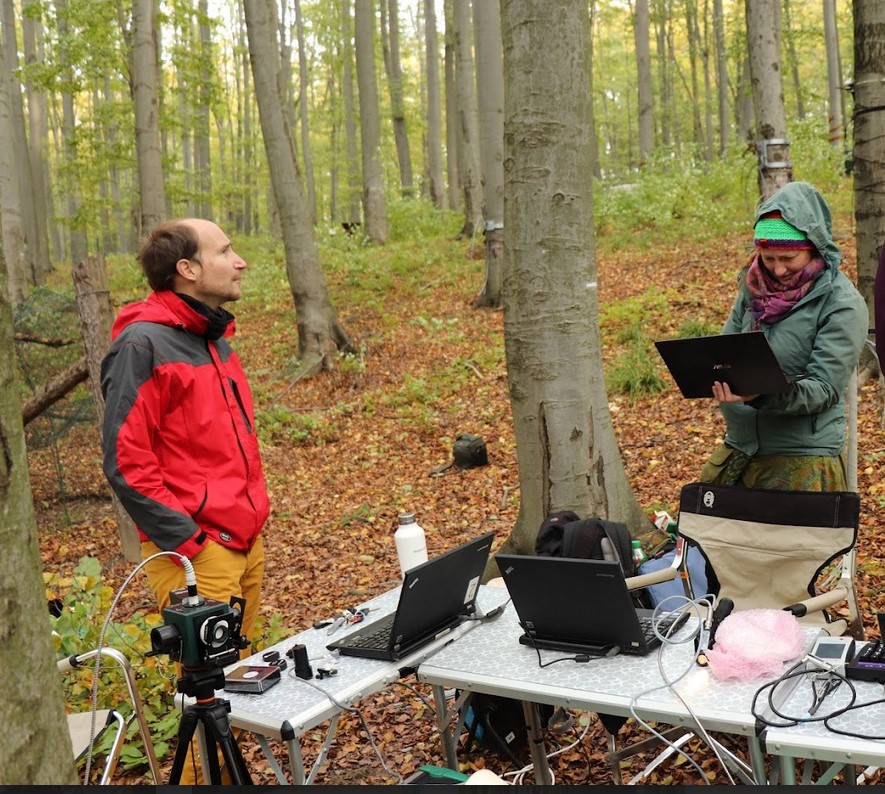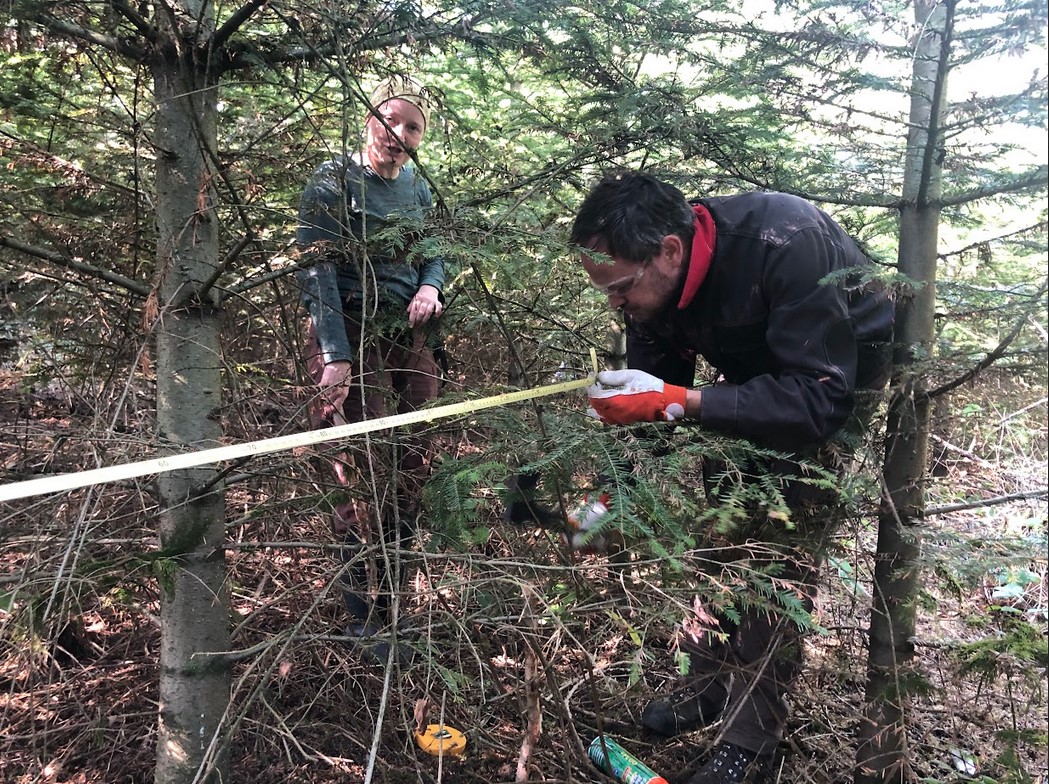Research Focus of the Team
The laboratory consists of two groups:
- 1) Plant Ecophysiology Group led by Prof. Jana Albrechtová and Dr. Zuzana Lhotáková
- 2) Mycorrhizal Symbioses and Fungal Associations Group led by Petr Kohout and located at the Institute of Microbiology of the Czech Academy of Sciences in Krč
Plant Ecophysiology Group conducts research on physiological and structural responses of plants to environmental conditions in the context of abiotic and biotic stress. Our focus is primarily on non-contact, non-destructive examination of plant responses and traits using optical properties (especially reflectance) at the leaf, individual, and canopy levels. Our ecophysiological research is closely integrated with remote sensing and studies on the impacts of climate change on plants and their carbon sequestration capabilities.
Research Topics – What Do We Study?
We study physiological and structural responses of plants to environmental conditions, often in the context of climate change phenomena (drought, flooding, heat waves, increased CO2 concentrations) or the impact of plant pathogens (e.g., Phytophthora spp., bark beetle). Primarily, we focus on the ecophysiology of woody species, addressing questions about their physiological responses to dynamic environmental changes in the context of genetic variability - for instance, working with trees (Scots pine) from various locally adapted populations across the species' range. Additionally, we work with important crops such as barley, beans, or maize, and to a limited extent with the model plant Arabidopsis.
Context – Why Do We Study This?
Under the ongoing climate change conditions, plant physiological responses to stress (caused by drought, heat, flooding) or to rising CO2 concentrations can negatively affect growth and yields of plants, including trees and agricultural crops, thereby reducing the carbon sequestration potential of plants in the carbon cycle. In forest ecosystems, these factors, in combination with pathogen development (e.g., bark beetle), threaten forest stability. In agricultural ecosystems, the primary goal is achieving the most efficient yield. Our goal is to contribute to understanding plant responses to enable, for instance, efficient selection of suitable crop cultivars or potentially resilient tree seedlings, or to detect changes in forest health early. More about our projects HERE and publications HERE.
Methodological Approaches – Where and How Do We Study?
We work with a wide range of experimental systems: field research on sites, pot experiments in greenhouses and on the department’s experimental garden, as well as in growth chambers. We frequently conduct research directly in the field, whether in protected areas (e.g., Krkonoše National Park – forest stands in various protection zones or relict Arctic-alpine tundra, floodplain forest at the confluence of the Dyje and Morava Rivers), managed forests (mature spruce stands, young fir plantations), or in seed orchards (Scots pine). Smaller controlled pot experiments on tree seedlings or crops take place in the department’s greenhouse or experimental garden. If strict manipulation of environmental conditions is necessary (e.g., spectral light composition, varied nutrient availability), we use the department’s growth chambers and boxes.
Within the department, a unique aspect of our team’s research is the use of the optical properties of foliage (laboratory spectroscopy) linked to remote sensing. We combine optical properties in plant physiological response studies with a broad array of methodological approaches – from “classical” physiological methods (growth parameters, gasometry, fluorescence) to microscopic – anatomical and histochemical, biochemical, and growth analyses. A more detailed overview of the methods used by our team can be found HERE.
Research Funding, Team Involvement, and Publication of Results:
Our research has been and is primarily supported by national grant projects (GA CR, Ministry of Education, Youth and Sports; Ministry of Agriculture) often with international collaboration (MEYS - bilateral projects in the INTEREXCELLENCE - INTERACTION program with the USA). We are also part of large research projects such as OP JAK (AdAgriF). We participate in international projects and consortia in collaboration with NASA, universities in the USA, and Europe. For more information on our grant projects, see HERE, on collaborations HERE. Research is integrated into the thesis work of master's and doctoral students. More about current students and successful alumni who completed their theses can be found HERE. We publish our results in reputable scientific journals, and selected publications can be found HERE.
Want to Learn More or Interested in Collaboration?
For opportunities for collaboration or thesis work (bachelor’s, master’s, or doctoral) in the Plant Ecophysiology Laboratory, please contact Jana Albrechtová or Zuzana Lhotáková via email. You can find us at Viničná 5, 3rd floor, offices 206 and 207.


























